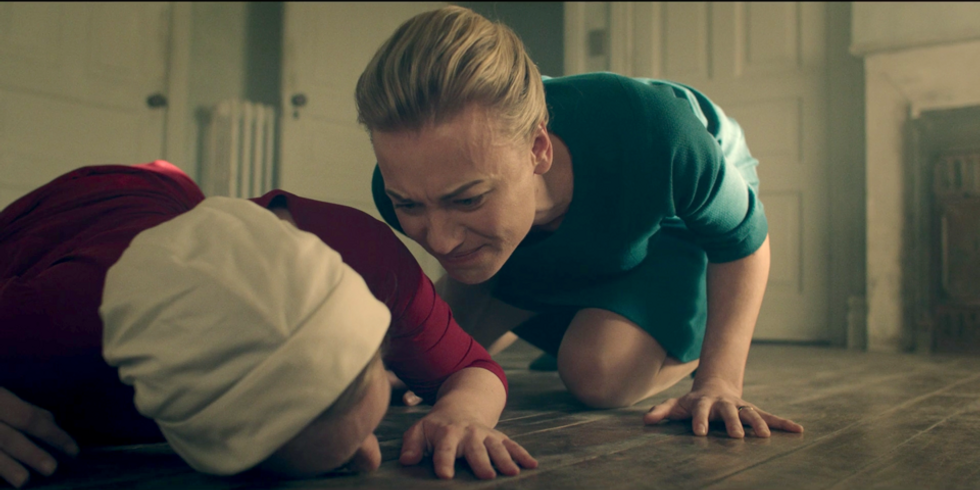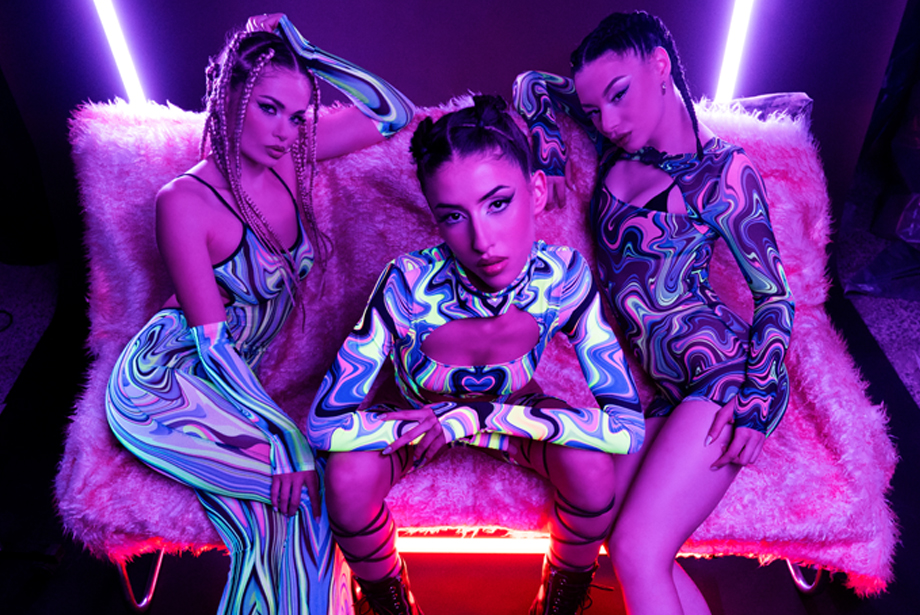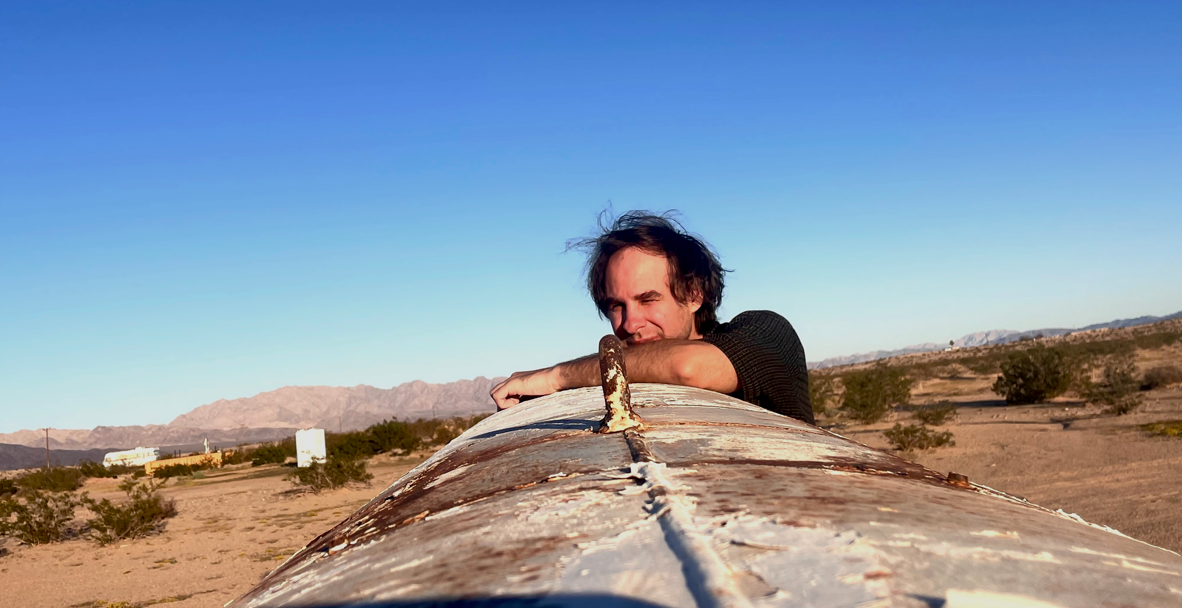Tv
“The Handmaid’s Tale”: Serena Waterford’s Complicity Represents an American Problem
10 Jul, 19

These are trying times, both in real life and in The Handmaid’s Tale‘s dystopian world of Gilead.
With the latter’s rape under the guise of religion, the criminalization of women’s health practices, and the attack on women’s and minorities’ rights, the line between reality and fiction is blurring. Season 3 of Hulu’s Elizabeth Moss-led adaptation remains a gripping, terrifying view of an all-too-real possibility for America’s future.
One of the most fascinating characters remains the former conservative activist Serena Waterford (Yvonne Strahovski), whose relationship with Moss’s June Osborne (a.k.a Ofjoseph #2) remains fluid, as shifting alliances—and a baby —have shaken June’s world. At the end of last season, Serena handed baby Nichole over to June, fully acknowledging that June would escape Gilead with the baby to give her a better life in Canada, free from oppression. Serena’s difficult choice hinted that she had defected, at least partly, from Gilead’s sexist, totalitarian regime. But as new episodes indicate, Serena seems to be driven by a love she’ll never have and possibly never understand—the love of a child.
Over the past three years, Serena has been a walking contradiction. She’s stern and sour on the outside, staunchly following Gilead’s beliefs and willfully following her husband’s leadership, both politically and in their household. Yet, Serena has shown that she’s capable of compassion through her willingness to do favors for June, her sharing of information about June’s older daughter, Hannah, and her empathetic, emotional decision to help June escape with the baby. It’s as if a new Serena has replaced the stone-cold, heartless woman from earlier episodes.
But is it possible for Serena to escape her religious past, and if so, does she deserve redemption? After all, she’s partly responsible for the creation of Gilead in the first place. Her religious views took center stage on her pre-Gilead college lecture tour, whereby she instructed women to do their duty and pro-create to help counter the plummeting birth rate. She wrote a book entitled A Woman’s Place, which contained the notorious line, “Never mistake a woman’s meekness for weakness.” Women, according to Gilead’s founding principles, should know their place and humbly fall in line. A feminist, she is not.
However, after the takeover, Serena was completely shut out of the new government planning. The neo-society won’t let women “forget their real purpose,” thereby using theological beliefs and societal circumstances to enslave women—even ones like Serena, who are lucky enough to find themselves married to powerful men and, due to their infertility, be free from Gilead’s sexual abuse and trafficking. Even scarier, she seems acquiescent in her new role.
But it’s her complicity in Gilead’s kidnapping, murder, and rape that makes Serena’s compassion so perplexing. She places her beliefs over other women’s human rights and can’t or won’t see the injustices her classism fuels. She, along with many others in Gilead, puts “the greater good” over the sexual traumas inflicted upon handmaids day in and day out. And that’s not to mention Gilead’s horrifying clitoridectomies, eye-gouges, and other mutilations it uses to keep the handmaids in line. Yet to Serena, these are normal. Gilead is normal. Praise be.
 Hulu
Hulu
As season 3 has shown thus far, Serena is backpedaling on her decision to let baby Nichole go. Her husband, Commander Fred, plans on negotiating with Canada for the baby’s surrender, despite Serena knowing deep down that a life in Gilead could have dangerous stakes for Nichole. Serena is putting her own yearning for love and motherhood over the well-being of an innocent child. If Serena can’t—or won’t—put the baby’s life over her own neediness, she’ll continue being unfit for parenthood. Just because we want something doesn’t mean we deserve it.
But Serena’s deeply layered emotional blueprint makes her strangely compelling. She’s completely unpredictable, warm one minute and icy the next. She’s religious and poised, but simultaneously callous and evil to June. Her desperation makes her selfish, the antithesis of most religious teachings. The paradoxes are both absurd and never-ending.
Though Serena can be maddening, Strahovsky delivers a spellbinding performance. The actress is able to pull sympathy from the audience, despite her character’s growing list of flaws. There’s a power struggle inside of Serena as she comes to terms with her fluctuating role as a socialite-wife and her loss of status to the men around her. Strahovsky leans into Serena’s villainous traits and stone-cold demeanor, but can turn heel and melt when it comes to Nichole’s or June’s plights. Some may not tolerate Serena’s softer side in light of her past evil-doings, but that’s what makes her such a polarizing yet powerful character. Strahovsky delivers a multi-faceted Emmy-worthy performance that we can hope eventually earns her the award (she was nominated for Outstanding Supporting Actress in a Drama Series last year but lost to Westworld‘s Thandie Newton).
The Handmaid’s Tale‘s dystopian future might not be that “dystopian” after all; it could be a portent for what lies ahead, thanks to the connivance of people like Serena Waterford. Though she hides behind her religion, using it as a beacon to guide her, she’s nowhere near moral. She idly stands by, devoid of voice, as women are abused, tortured, impregnated, and then ripped from their offspring. But when faced with the opportunity to get something she’s only dreamt of, only then does she begin to act differently. Is she deserving of forgiveness? We’ll have to see how the series shakes out. For now, she remains an unfeeling religious zealot weaponizing her faith to oppress others.













